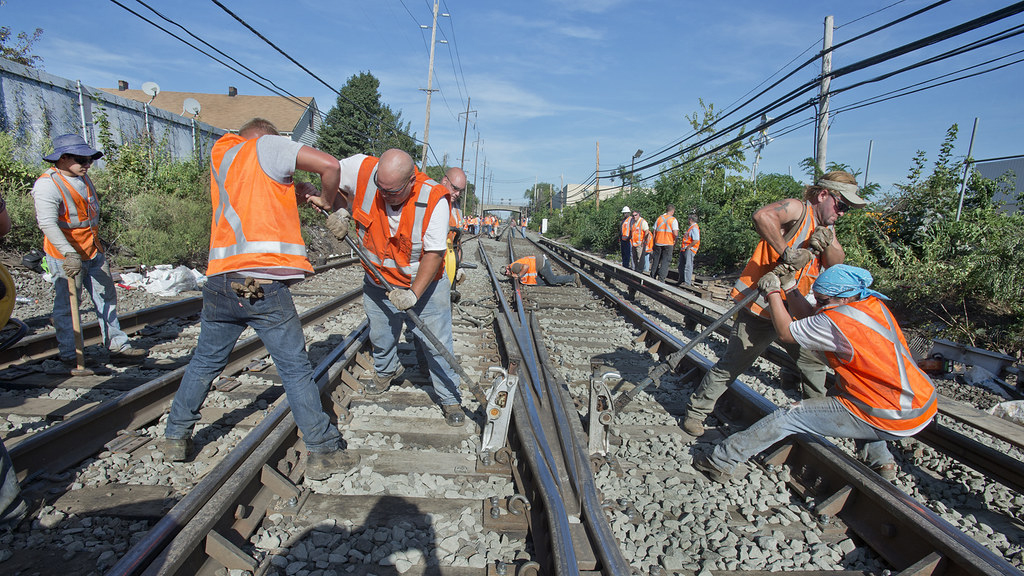On October 10, the Brotherhood of Maintenance of Way Employees , the third largest rail workers’ union voted to reject a deal with employers, which closely followed the recommendations by the Biden-appointed Presidential Emergency Board. This latest rejection renews the possibility of a nationwide strike which could have an enormous impact on the US economy.
On September 15, the Biden administration intervened in negotiations between railway corporations and rail workers’ unions to avert a nationwide and potentially economically-crippling strike. But this intervention may be soon rendered futile.
Biden’s intervention in the mid-September strike threat left the major questions around working conditions unresolved. The Presidential Emergency Board, created this past July specifically to avert a nationwide rail workers’ strike, recommended that corporations increase workers’ pay. But the board left workers on their own when it came to conditions, saying that unions should pursue additional negotiations with individual rail corporations, which could take years.
Rail workers in the US have enormous influence over the economy as a 115,000-strong workforce in a USD$80 billion freight rail industry, in charge of transporting the nation’s goods. The BMWED is only the first union to reject the Biden-inspired deals with railroad corporations. Other enormous rail workers’ unions, including BLET and SMART-TD, will finalize their votes on their contracts with rail corporations in mid-November.
11,845 BMWED workers submitted votes on the latest deal, inspired by Presidential Emergency Board recommendations, with railway employers. The deal was rejected by around 56% of workers with 6,646 votes against. The rejection means that the union and employers will reengage in negotiations. The earliest possible potential strike date is November 19.
This tentative national agreement was negotiated between the union and the seven Class I freight railroads, which are BNSF Railway Co., Canadian National Railway (Grand Trunk Corporation), Canadian Pacific (Soo Line Corporation), CSX Transportation, Kansas City Southern Railway Co., Norfolk Southern Combined Railroad Subsidiaries, and Union Pacific Railroad Co.
While the latest deal included 24% raises and $5,000 in bonuses for railway workers, it failed to address workers’ core concerns of lack of sick days and exhausting schedules. In September, workers were on the verge of striking because of a lack of guaranteed sick days and grueling schedules without time off for long stretches. Big railroad companies have been cutting staff in order to squeeze maximum profits out of fewer workers—calling this policy “Precision Scheduled Railroading.” From 2015 through 2021, large railroad corporations cut staff from 161,000 to 114,000, despite the fact that during this time the amount of freight transported increased.
For workers, the latest agreement negotiated between BMWED and rail corporations still fails to address issues related to working conditions and quality of life, rather than pay. “Railroaders are discouraged and upset with working conditions and compensation and hold their employer in low regard,” stated BMWED president Tony D. Cardwell. “Railroaders do not feel valued. They resent the fact that management holds no regard for their quality of life, illustrated by their stubborn reluctance to provide a higher quantity of paid time off, especially for sickness.”





